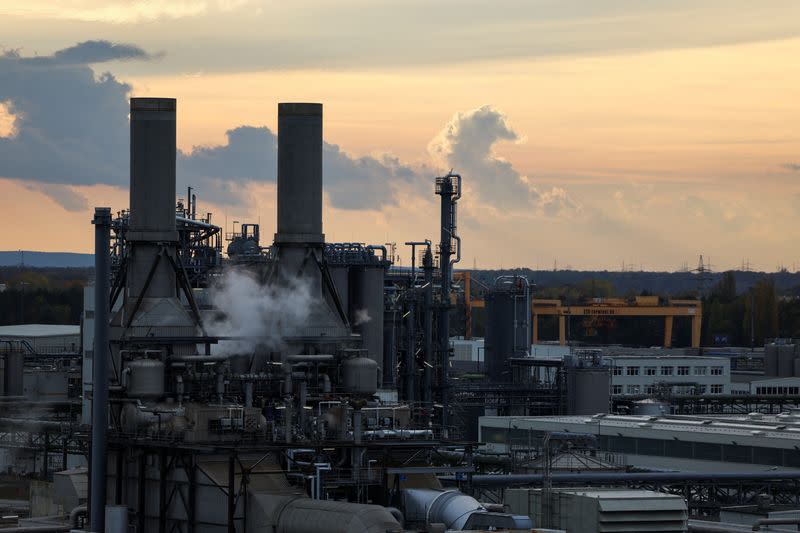BASF warns of earnings decline, cuts jobs in battle against costs

By Ludwig Burger
LUDWIGSHAFEN, Germany (Reuters) - BASF said it would cut 2,600 jobs, halt share buybacks and hike investment to improve competitiveness as it warned of a further decline in earnings due to rising costs.
The German chemicals giant said in a statement on Friday that adjusted 2023 earnings before interest and tax (EBIT), would fall to between 4.8-5.4 billion euros ($5.09-$5.69 billion) from 6.9 billion euros in 2022, which was down 11.5% from 2021.
BASF, which in October laid out plans to cut annual non-production costs in Europe by 500 million euros, said on Friday this would lead to 2,600 job cuts, or about 2.3% of its global workforce, including about 1,800 job losses at its Ludwigshafen headquarters.
It also announced plans to cut another 200 million euros in annual fixed production costs.
A 3 billion euro share buyback programme will be stopped after 1.4 billion euros was spent, due to "profound changes in the global economy", it added.
"Europe's competitiveness is increasingly suffering from overregulation, slow and bureaucratic permitting processes, and in particular, high costs for most production input factors," said Chief Executive Martin Brudermueller.
Shares in the company slumped 6.6% to their lowest in almost two months at 1400 GMT, the worst performer on Germany's blue-chip DAX 30 index. BASF kept the 2022 dividend flat at 3.40 euros and did not commit to a longer-term increase.
Finance chief Hans-Ulrich Engel said dividends would depend on future cash flows after investment.
"Uncertainty over dividends and a strong increase in investment expenditures are a burden on the share price," Arne Rautenberg, a portfolio manager at German mutual fund firm Union Investment, told Reuters.
Investments, driven by an expansion in China and a global bet on automotive battery chemicals, would be 6.3 billion euros this year, up more than 50% from 2022, and rise further for a peak in 2024, BASF said.
BASF's job cuts, which are about 3.9% of its European workforce, come after carmaker Ford last week said it would slash 3,800 roles in Europe. Hit by a product recall, Dutch medical device company Philips last month announced it would scrap 6,000 jobs.
BASF said it would strive to offer affected staff alternative positions. It has previously flagged the risk of major labour shortages as baby boomers retire in Germany.
At the heart of BASF's soaring costs are European natural gas prices which rocketed last year after Moscow's invasion of Ukraine. Although European prices have eased to around 50 euros per megawatt hour (MWh) from last August's peak of more than 340 euros, they remain above historic averages.
Europe's gas market rollercoaster https://fingfx.thomsonreuters.com/gfx/mkt/dwvkdzanapm/gas.PNG
RUSSIA WRITEDOWN
BASF revised its 7.3 billion euro writedown for its Wintershall Dea energy business pulling out of Russia to leave a group net loss for 2022 of 627 million euros, down from January's preliminary figure of 1.38 billion euro.
In 2023, several production lines will be shuttered at Ludwigshafen, home to its largest chemical complex and about 39,000 staff.
This includes the closure of one of two ammonia plants there. Ammonia, among the most gas intensive products in the chemical industry, is used in products such as engineering plastics and diesel exhaust cleaning fluid but BASF said customer demand would still be met.
BASF, which 90 years ago invented large-scale production of ammonia, is one of the largest ammonia producers in Germany, alongside Yara and SKW Piesteritz.
($1 = 0.9484 euros)
(Reporting by Ludwig Burger and Anika Ross; editing by Sharon Singleton and Elaine Hardcastle)